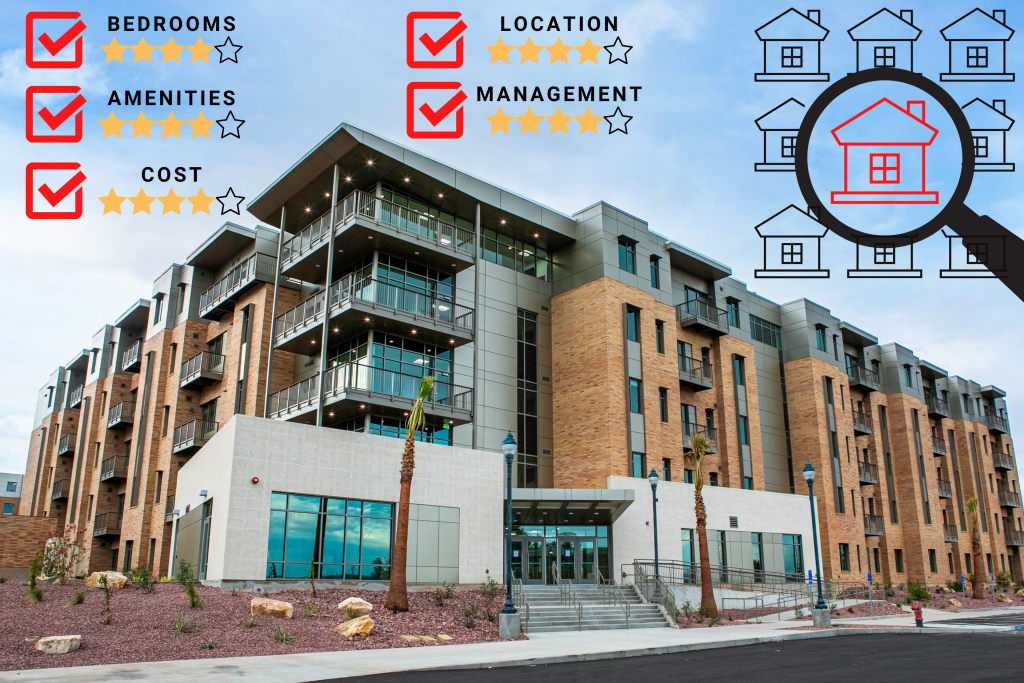For first year college students, one of the most stressful tasks when moving is finding a place to live.
There’s the debate between living off-campus or on-campus. For the inexperienced, it’s hard to see the differences between the two types of housing. Here is a list of pros and cons to make the decision easier.
Cost
On-campus housing wins in this department, it’s significantly cheaper to live on-campus. Campus View Suites charge $1,749 a semester for a shared room and $2,499 for a private room. This may seem like a lot when you first see it, but compared to off-campus housing that charges $715 a month for a private room, it’s a much better deal.
Students also have the opportunity to receive a scholarship to pay for their housing, but this is only for on-campus housing. On-campus housing does fill up quickly, so students are forced to look at off-campus housing. Dixie State University has a solution for this dilemma, a Campus View Suites III is in the works.
“As CVS II filled up so quickly, we have recognized the need for student housing in St. George, and will most likely begin construction for CVS III before the five-year mark,” said Jerhett Jerman, Resident Life Services manager.
The downside to off-campus living is definitely the price tags, but that price does come with extra amenities students love.
“The vast majority of off-campus housing will be more expensive than on-campus options, so students on a tight budget will be more likely to live on-campus,” said Carter Evans, Vintage at Tabernacle Property manager.
Finding an off-campus housing situation for a the same or cheaper as on-campus housing is hard to find and will typically have the same bare minimum amenities as on-campus housing.
“Student housing in St. George is a pretty great example of getting what you pay for,” Evans said.
College Experience
It’s more normal for freshmen to live on-campus and for upperclassmen to live off-campus. It seems like the right move for those who don’t have the experience of living without their parents; however, it can depend on the independence and experience of the student.
“I think living off-campus is perfect for the right type of student,” Evans said.
Evans said students who haven’t learned how to balance their social and school life or who study more can benefit greatly from living on campus because they can be closer to the library and other resources.
Both on-campus and off-campus living can provide a great college experience for students in different ways.
“Living on-campus, students can get more involved easier as student activities are typically on campus,” Jerman said. “Students are able to merely walk out of the building versus walking a couple blocks or even driving to campus for an activity.”
Living Space
The living space in the two different types of housing is extremely different. On-campus, you’ll have a smaller shared or private room with a shared bathroom and a living room. The kitchen will be down the hall and the laundry somewhere else in the building as well. The living space does not seem comfortable.
“If you do not value your personal privacy, living on-campus could be economically worth it,” said Alexander Andersen, a senior communication studies major from Los Angeles.
Off-campus housing will usually have an apartment style living space. Four to five bedrooms, a full kitchen, laundry, and a living room. This is one reason students choose off-campus housing.
“I would say the pros of living off-campus would be having a kitchen and private parking lots,” said Sydney Johansen, a junior communication studies major from Tooele. “It is a lot harder finding parking at the school.”
There’s a lot to think about when deciding where to live; make sure to choose the option that best fits your needs in school.






